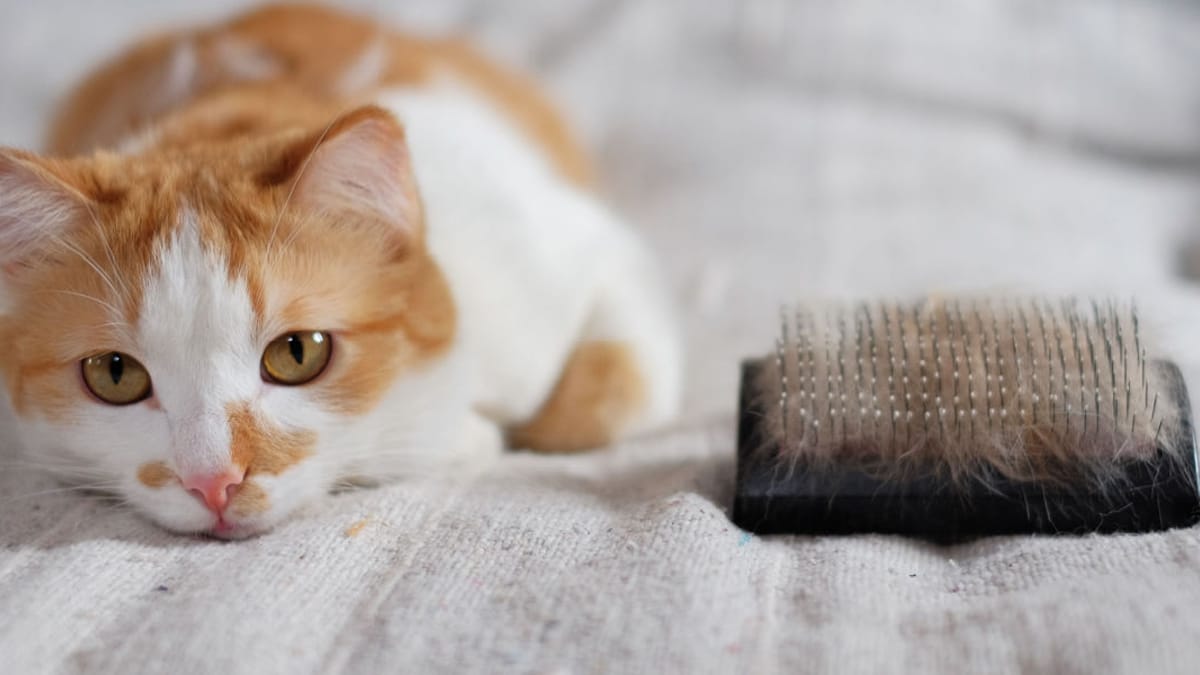The hair loss in cats it can be caused by various health problems, such as food allergies and folliculitis, but more often than not, it is stress that causes the cat to lose patches of hair and become hairless in some areas.
A particularly stressful event, such as a move, a trip or a surgery, lead the cat to undergo a particular form of anxiety which can cause hair loss.
Here are some tips to take care of the feline when the annoying problem of feline alopecia occurs.
When does the cat lose its hair?
Hair loss in cats is caused by a multitude of reasons, such as:
- Normal physiological replacement of the hair (molting)
- Excessive grooming (due to skin infections, allergies, or parasites)
- Stress
- Hormonal problems
Even though alopecia is a fairly rare condition, a visit to the vet is recommended.
Hair loss in cats: symptoms
Aside from the normal moulting period, attention should be paid to any changes in the appearance of the cat’s coat. The symptoms that indicate a health problem in the feline are:
- Dull and/or greasy hair
- Insistent licking in certain parts of the body
- Excessive scratching in some areas
These could all be signs of the presence of parasites or skin disorders that should not be overlooked.
My cat loses a lot of hair: what to do?
Below are 5 important hair loss tips for cats.
1. Go to the vet when cats lose their hair
The first thing to do is go to the veterinary doctor, who will do a thorough visit and establish what are the causes of the cat’s hair loss and the extent of the problem and will tell you how to take care of your pet’s hair.
Without an accurate diagnosis can not be resorted to natural remediesnor can the disorder be solved concretely which, if not treated adequately and promptly, can become even more serious.
2. Check that it has no red dots
Sometimes hair loss can be caused by bacterial folliculitis. In this case, in the points where the cat’s coat has patches, there are gods red dots on the cat’s skin.
Have your feline sedated by the vet and then give him a bath with a medicinal antibacterial shampoo.
It will always be the doctor who will decide an antibiotic treatment which will last about a week and which will solve the root problem.
3. Hair loss in cats? Beware of nutrition!
If the cat, in addition to scratching and shedding, also has episodes of vomiting and diarrhea, could be allergic to the feed you feed them.
Talk to your vet to confirm and then try switching food. A “cleaner” diet and with foods suitable for allergic cats and their digestive system will solve the problem of hair loss.
4. Don’t forget the seasonal problems!
Allergies can depend not only on food, but also on pollen and flowers present during the spring season and thus cause hair loss in cats.
Seasonal allergies
Always check your cat’s coat at the change of season and if you notice that the patches appear especially in the warm period, the feline probably suffers from seasonal allergies.
Consult your vet for a safe and complete diagnosis, who will surely be able to advise you on the right medicine to combat allergies.
Even fleas have their faults…
Also beware of fleas in cats. These cause itching in the cat which, scratchingwould cause hair loss.
Also, some cats may even be allergic to flea saliva and, for this reason, they could lose part of their beautiful coat. Talk to your vet if you have any suspicions.
5. Don’t stress the cat!
The cat is an animal that suffers particularly from stressespecially if particularly demanding events occur for him, such as moving house, traveling or visiting a doctor.
Hair loss in cats can be caused by anxiety, so contact your doctor who will be able to prescribe the most suitable tranquilizers for cats to solve your four-legged friend’s behavioral problem.

